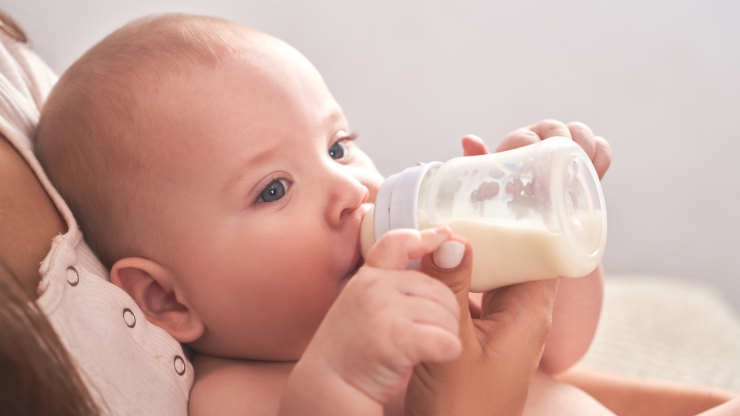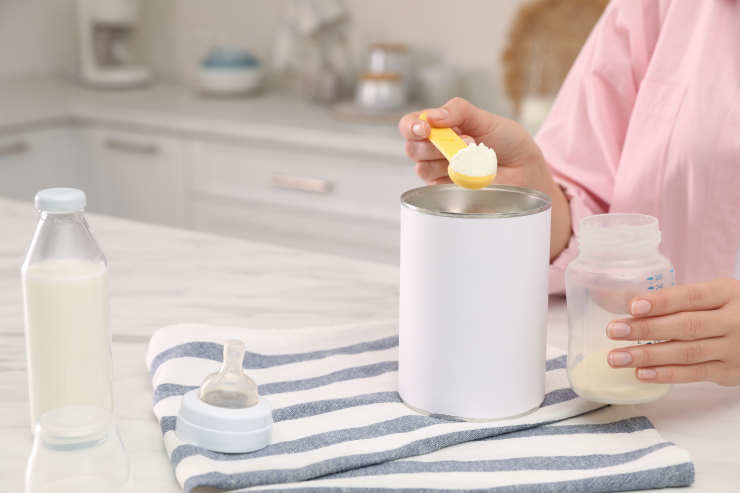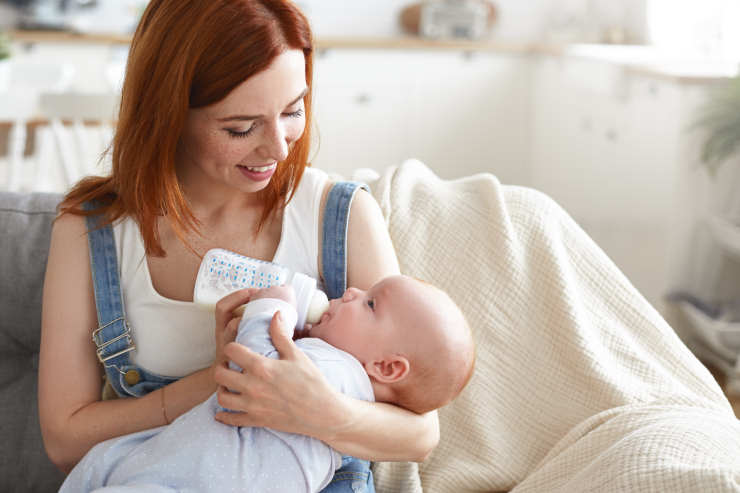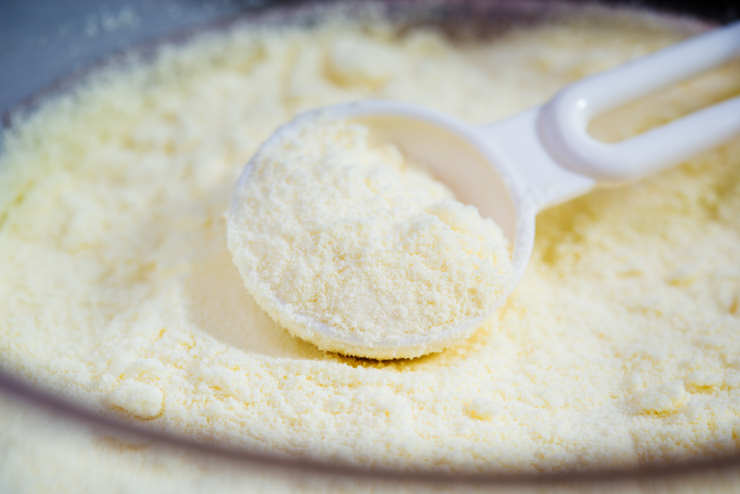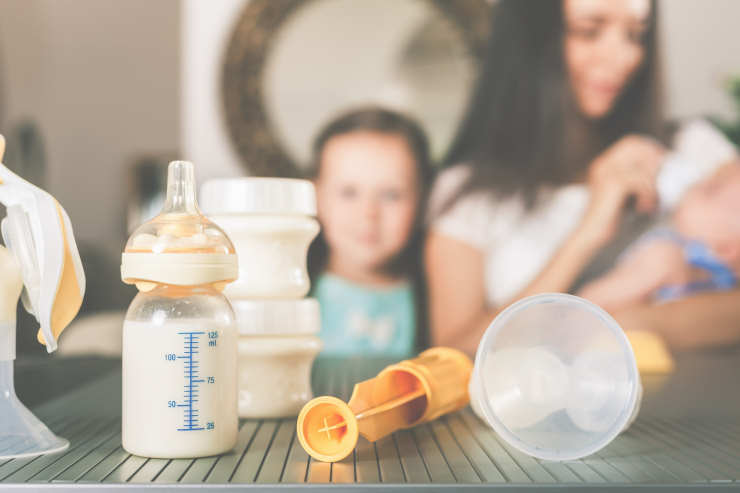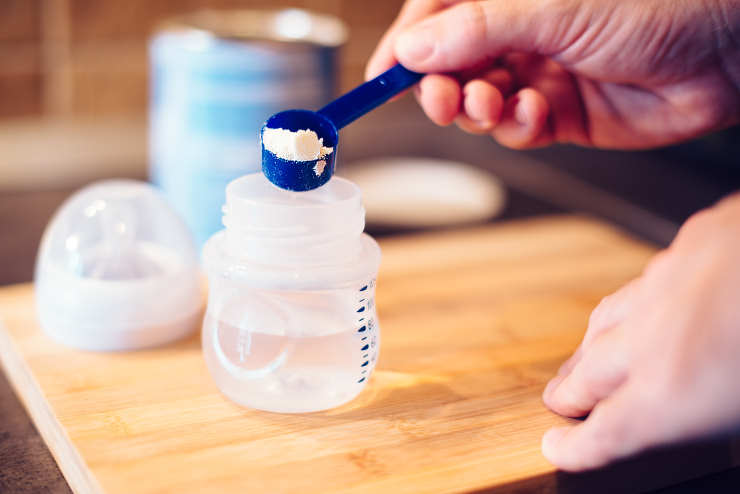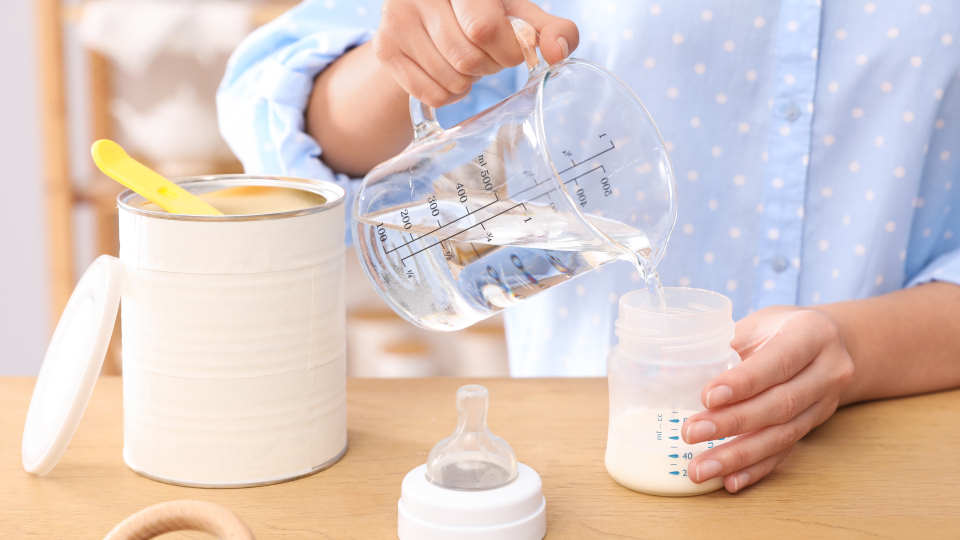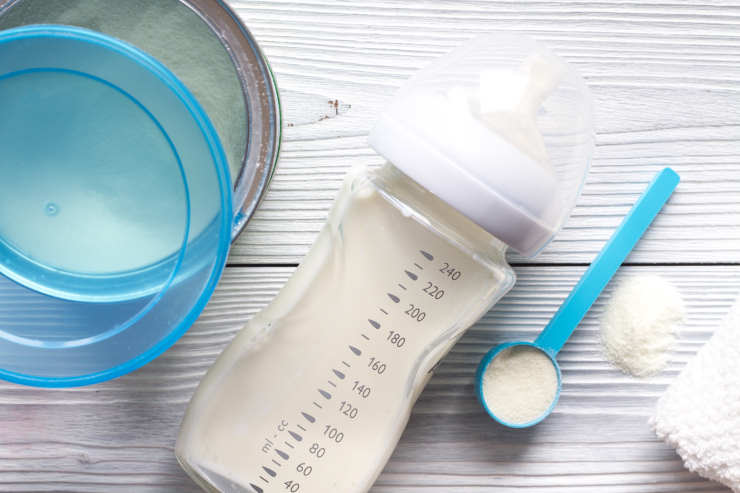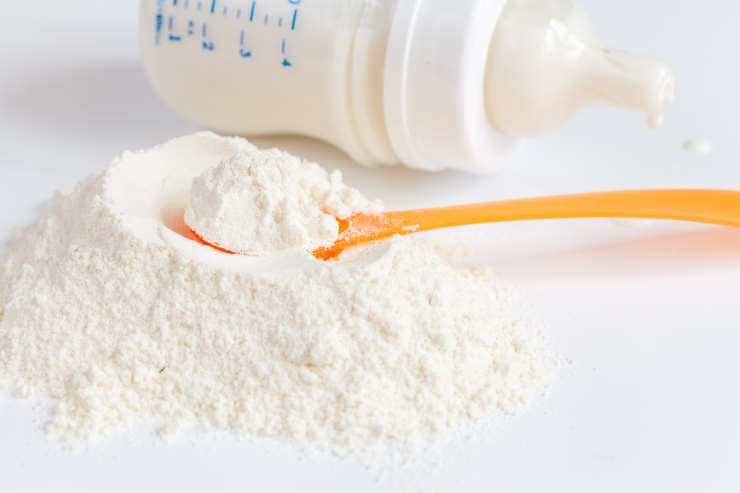As a new parent, it’s natural to have a lot of questions about how to take care of your baby. One question that often comes up is whether babies can drink cold formula or if it’s better to give them warm formula. The answer is that babies can drink both cold and warm formula. However, there are a few things to consider before deciding which temperature to use. We’ll explore the pros and cons of cold and warm formula, including why you can’t give a baby cold formula, whether cold formula causes gas or upset stomach in babies, and whether it’s ok to use cooled boiled water for formula. Read on to learn more.
Introduction
As a new parent, there are many questions that come to mind when it comes to your baby’s feeding. One common question that arises is, Can Babies Drink Cold Formula? The short answer is yes, they can. When it comes to feeding your little one, the most important thing is to make sure that the formula is safe and warm enough for consumption. Some babies may prefer room temperature or even chilled formula, while others may like it warm.
It is important to note that some babies may have a preference when it comes to the temperature of their formula, which can impact their feeding habits. If you have been feeding your baby warm formula and they start to reject it, one option is to try offering it at a cooler temperature. Going from warm to cold may be a drastic change for some babies, so you can try gradually decreasing the temperature until they are comfortable with cold formula.
Additionally, some babies may have digestive issues or sensitivity to cold milk, which can cause discomfort or gas. If your baby is experiencing any adverse effects from drinking cold formula, it may be best to consult with your pediatrician to determine if there are any underlying issues that need to be addressed.
- When preparing cold formula, it is important to follow the same safety measures as you would with warm formula.
- Make sure to clean and sterilize all bottles and equipment before use.
- Use cooled boiled water or bottled water to mix with the formula to reduce the risk of contamination.
- Store any unused formula in the refrigerator and discard any leftover after 24 hours.
Is It Better to Give Baby Cold or Warm Formula?
As a new parent, you may be wondering what temperature of formula is best for your baby. Is it better to give them a cold bottle, or a warm one? The answer, unfortunately, isn’t straightforward – it depends on your baby’s preferences, as well as a few other factors.
Some babies prefer cold formula. While many parents opt to warm up their baby’s formula to body temperature, some babies actually prefer cold milk. In fact, some babies refuse to drink formula unless it’s cold! This could be because breastmilk, which is naturally warm, tends to be at a lower temperature than heated-up formula.
- If your baby seems to prefer cold formula, don’t worry – it’s perfectly safe to give them a chilled bottle of formula.
- Make sure to store the formula in the fridge after opening, and toss any unused formula within 24 hours.
That being said, many babies still prefer warmed-up formula. If you’re finding that your baby is more willing to drink their formula when it’s warm, there are a few benefits to consider:
- Warm formula can be more soothing on a baby’s tummy, and may be more easily digested.
- Many babies find the act of drinking a warm bottle of formula to be calming and comforting, particularly at bedtime.
Of course, there are a few downsides to consider as well. For one, warming up formula can be time-consuming, especially if you’re doing it in the middle of the night. Additionally, if you’re out and about, it can be harder to ensure that your baby’s formula is warmed up to the correct temperature.
Why Can’t You Give a Baby Cold Formula?
As a parent, it’s natural to want to know what’s best for your baby. One of the most common questions new parents have is whether it’s safe to give their baby cold formula. Unfortunately, the answer is no. Giving a baby cold formula can be dangerous because it can cause your baby to get sick.
The reason for this is that cold formula creates a breeding ground for bacteria. When formula is left at room temperature for too long, the bacteria in the formula can multiply rapidly. This puts your baby at risk of getting sick from bacteria like E. coli, Salmonella, and Listeria.
Another reason why you shouldn’t give your baby cold formula is that it can be hard for your baby to digest. The digestive system of a baby is still developing, and cold formula can slow down digestion even further. This can cause a number of problems, including gas, bloating, and constipation.
So, what is the best way to give your baby formula?
- The safest and healthiest option is to give your baby formula that has been warmed to room temperature or slightly above.
- There are a few ways to warm up formula:
| Method | Instructions |
|---|---|
| Bottle Warmer | Follow the manufacturer’s instructions to warm the bottle in a bottle warmer. |
| Warm Water Bath | Place the bottle in a bowl of warm water for a few minutes, making sure not to submerge the nipple. |
| Microwave | Only warm the formula in the microwave if there are no other options available. Be sure to shake the bottle well and test the temperature before feeding the baby. |
Does Cold Formula Cause Gas in Babies?
Many parents often wonder whether giving their baby cold formula causes gas. The truth is that the temperature of the formula does not matter when it comes to gas. Gas is a common problem in babies due to their developing digestive system. It is not caused by cold formula, but rather by swallowing air while feeding or from particular types of formula. However, giving your baby cold formula may affect the baby’s feeding and digestion in some other ways.
Some babies may prefer warm formula for their comfort, while others may not mind drinking cold formula. If your baby is used to warm formula, it may take some time before they get used to cold formula. Additionally, cold formula may make the baby’s digestion process slower, making them feel full and may feed less often. This can lead to poor weight gain or even dehydration in some cases.
- In conclusion, it is not cold formula that causes gas in babies, but rather, swallowing air while feeding or using specific types of formula. However, it is essential to note that each baby is unique, and what works for one may not work for another.
- As a parent, you should also ensure that you prepare the formula correctly to avoid any contamination that may cause gastrointestinal issues. Always sterilize feeding bottles and nipples properly and be cautious when using cooled boiled water for formula preparation.
- If your baby experiences excessive gas, discomfort, or bloating, consult a healthcare professional for a proper diagnosis and treatment. Do not self-medicate your baby, as some medication may be harmful to their health.
| Pros | Cons |
|---|---|
| Convenient in emergencies and while travelling | May affect digestion process in some babies |
| May be soothing for teething babies | May cause feeding problems for babies used to warm formula |
| May save time and energy in preparing formula | May lead to poor weight gain or dehydration in some cases |
Is It Ok to Use Cooled Boiled Water for Formula?
When it comes to preparing formula for your baby, it can be overwhelming to navigate the different options and opinions out there. One common question new parents ask is whether it is okay to use cooled boiled water for formula. The short answer is yes, but let’s dive into the reasons why.
Firstly, boiled water is crucial for formula preparation as it ensures harmful bacteria and viruses are killed off. Cooled boiled water means the water has already been heated and sterilized, and it has been allowed to cool down to a safe temperature for your baby. This is important as it protects your baby’s sensitive immune system from potentially harmful illnesses.
- Pro tip: To minimize the risk of contamination, it is recommended to boil fresh tap water and cool it down to room temperature before using it to prepare formula.
Secondly, using cooled boiled water for formula also helps to prevent certain health conditions. For example, if your water supply has a high concentration of nitrates, heating it to boiling point can actually increase their concentration, leading to a potentially fatal blood condition in infants. Boiling the water beforehand and allowing it to cool down helps reduce the concentration of nitrates, making it safer for your baby to consume.
Lastly, using cooled boiled water for formula can also be a cost-effective and convenient option for parents. Not only does boiling your own water save money compared to buying pre-made bottled water, but it also means you are not adding to plastic waste. Plus, you can store cooled boiled water in a sterilized container in the fridge for up to 24 hours, making it readily available for formula preparation whenever you need it.
| Pros | Cons |
|---|---|
| Boiling water kills harmful bacteria and viruses | Extra time and effort required to boil and cool water |
| Helps prevent certain health conditions such as nitrate toxicity | May not be ideal for travel or when on-the-go |
| Cost-effective and eco-friendly | May need to invest in equipment such as a sterilizer or bottle warmer |
Overall, using cooled boiled water for formula is a safe and recommended practice. Just make sure to follow proper sterilization methods and store the water properly to ensure your baby stays healthy and happy.

